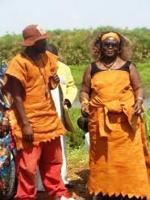Nairobi History, The History of the City of Nairobi in Kenya
If you need to know Nairobi History, then you’ve come to the correct site.
On this site we will give you the coolest information about the history of Nairobi from time immemorial up to present day.
The name "Nairobi" came from Ewaso Nyirobi ("cold waters"), which was the name of a water hole once frequented by the pastoral Masai, located inside the valley.
Nairobi was founded in 1899 as a supply station for the expansion of the Mombasa-to-Uganda railroad, the site was selected as a stores depot and camping ground for the thousands of Indian laborers and British colonials.
Other Related Pages
Day out in Nairobi City › | History of Nairobi › | Nairobi General Information › | Hotels and Lodges › | Safari Transport in Nairobi › | Shopping Guide › | Getting to Nairobi › | How to Visit Kenya Airports › | Security at JKIA › | Visa info at JKIA › | JKIA Guide › | Eating out in Nairobi city › | Explore Nairobi › | Cargo Handling in Nairobi Airport › | Destinations in Nairobi City › |Nairobi soon became the railway's headquarters. From 1899 to 1905 it served as a British provincial capital.
Nairobi was completely rebuilt in the early 1900s after an outbreak of plague and the burning of the original town.
By 1905, Nairobi replaced Mombasa as the capital of the British East Africa Protectorate, the city grew around administration and tourism, and the main occupants were British game hunters.
Due to high demand for Workman in the plantations, Africans was forced to work for Europeans, in 1920 the British government began to confiscate African Land. Most Indians took up trade as their major occupation.
The number of white settlers within Nairobi grew from 9,000 to 80,000, the continuous expansion of the city angered the Maasai people and the Kikuyu people, who wanted the land returned to them.
In the early 1950s, the Mau Mau launched a severe war in Kenya, with the purpose of remove the British from the Country. Mau Mau was beaten after Britain troops were sent to Kenya.
By 1954, the British ordained Operation "Anvil", a try to rid Nairobi of Mau Mau supporters. More than 30,000 arrests were made, in 1956, Dedan Kimathi, leader of the Mau Mau, was captured and executed.
Jomo Kenyatta was incarcerated for his participation in this rebellion even though there was no evidence linking him to the movement.
Pressure applied from the Africans onto the British resulted in Kenyan independence in 1963, Nairobi became the capital of independent Kenya, and Jomo Kenyatta was elected Prime Minister from 1963 to 1964. In 1964, he was elected president.
President Kenyatta died in 1978 and was succeeded by his vice president, Daniel Arap Moi.
On August 7, 1998, the U.S. Embassy was bombed apparently by Al-Qaeda, 227 civilians were killed, including 12 Americans, it is now the site of a memorial park.
Nowadays, Nairobi is a blend of a number of different tribes and settlers, the city has a large tourism industry, and its economy has continued growing and retained its status as a commercial center.
Recent Articles
-
Garam Masala Appetizers ,How to Make Garam Masala,Kenya Cuisines
Sep 21, 14 03:38 PM
Garam Masala Appetizers are originally Indian food but of recent, many Kenyans use it. Therefore, on this site, we will guide you on how to make it easily. -
The Details of the Baruuli-Banyara People and their Culture in Uganda
Sep 03, 14 12:32 AM
The Baruuli-Banyala are a people of Central Uganda who generally live near the Nile River-Lake Kyoga basin. -
Guide to Nubi People and their Culture in Kenya and Uganda
Sep 03, 14 12:24 AM
The Nubians consist of seven non-Arab Muslim tribes which originated in the Nubia region, an area between Aswan in southern







New! Comments
Have your say about what you just read! Leave me a comment in the box below.